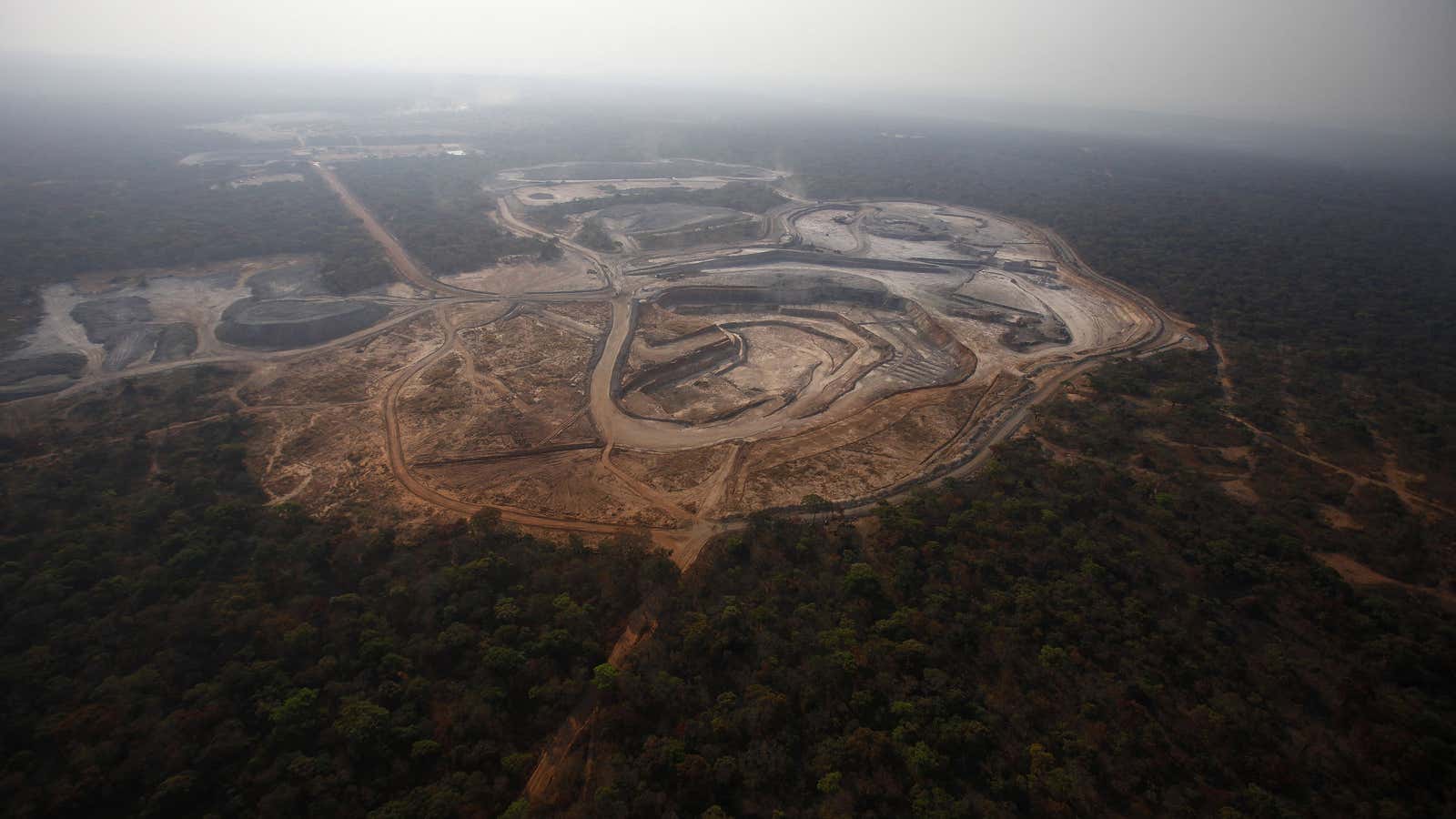Global transparency watchdogs are disputing the rationale for a US federal judge’s ruling that exempts American oil and mining companies from publicly divulging their payments to foreign states and their rulers.
The reproach—from Oxfam and Global Witness, the UK-based transparency watchdog—stems from a July 2 ruling by US District Judge John Bates. In his decision, Bates sided with oil and business lobbyists who asserted that if American companies were compelled to publicly reveal such payments, they would be at a competitive disadvantage to state-owned extractive companies that can keep them secret.
The American Petroleum Institute, representing oil companies, specifically said such public disclosure is barred in Angola, Cameroon, China and Qatar. It suggested that payments be revealed to regulators, but privately and not for public consumption.
But in a statement today, Global Witness asserted that the four countries in fact permit public disclosure—if regulators in a company’s home country require it (here is more detai.l) In an email exchange, Dominic Eagleton, a staff campaigner for Global Witness, said:
“Angola has had (for at least 2½ decades) a standard Production Sharing Agreement contract that includes a provision which allows for disclosure should an issuer’s regulatory agency (read for that SEC) require it.
Cameroon is an EITI (Extractive Industries Transparency Initiative) implementing country–the EITI requires the disclosure of the same revenue payment data as [Dodd Frank act section] 1504.
No law that bans disclosure has been discovered in Qatar (given the company that made this claim is responsible for the production of at least 50% of Qatar’s gas output, it’s hard to believe they’d be shut down even if such a law existed).
In China, the only evidence that was provided to the SEC was a comment from a law firm (not even a credible ‘legal opinion’), which stated in essence that things can be confidential if the government determines them to be—as is the case in producer countries across the world—but they did not cite any particular law.”
In response, the API’s Carlton Carroll sent me the following by email:
“I would reiterate that these countries bar disclosure and any exceptions to that are ambiguous at best. The overarching problem is that the rule makes US companies less competitive when competing for energy projects around the world. In addition, the rule puts existing progress to increase transparency at risk. US companies are making substantial progress working for over a decade to enhance transparency in a way that doesn’t harm their competitiveness.”
We are in he said-she said territory.
But Bates’ decision countervails a global trend affecting the resource business.
Natural resource deals in the frontiers of the world typically share a trait—the metals or hydrocarbons involved are usually controlled by powerful politicians or bureaucrats, and you tend to see lubrication by bribery and other sweetheart payments. But for the last decade, momentum has been building behind the disclosure of such payments—in June, the European Union approved a law requiring transparency, and big mining deals are under legal scrutiny around the world.
Among the probes, a US grand jury is investigating a sweetheart mining deal in Guinea involving an alleged $12 million bribe and the Israeli billionaire Beny Steinmetz. In the UK, the Serious Fraud Office is investigating African mining deals including in Congo (paywall) by Kazakhstan-based Eurasian Natural Resources Corporation.
Bates’ decision still leaves US-based drillers and miners potentially exposed to transparency rules. Those that have European operations are subject to the EU law. In addition, the US Securities and Exchange Commission (SEC) can rewrite the disclosure rule to align with Bates’ quibbles. In a statement, Oxfam said resurrection of the SEC rule will “help prevent corrupt government officials from squandering oil and minerals wealth in resource-rich countries.”
